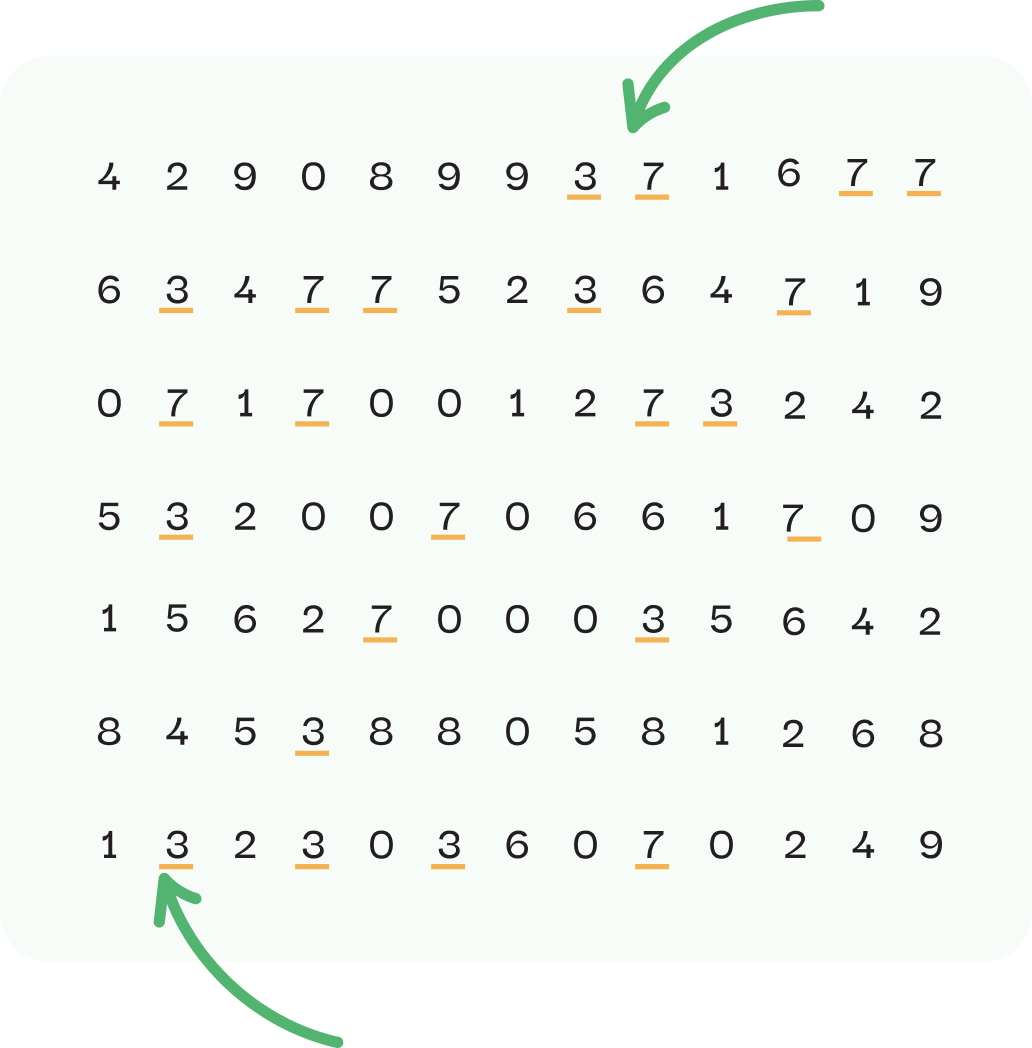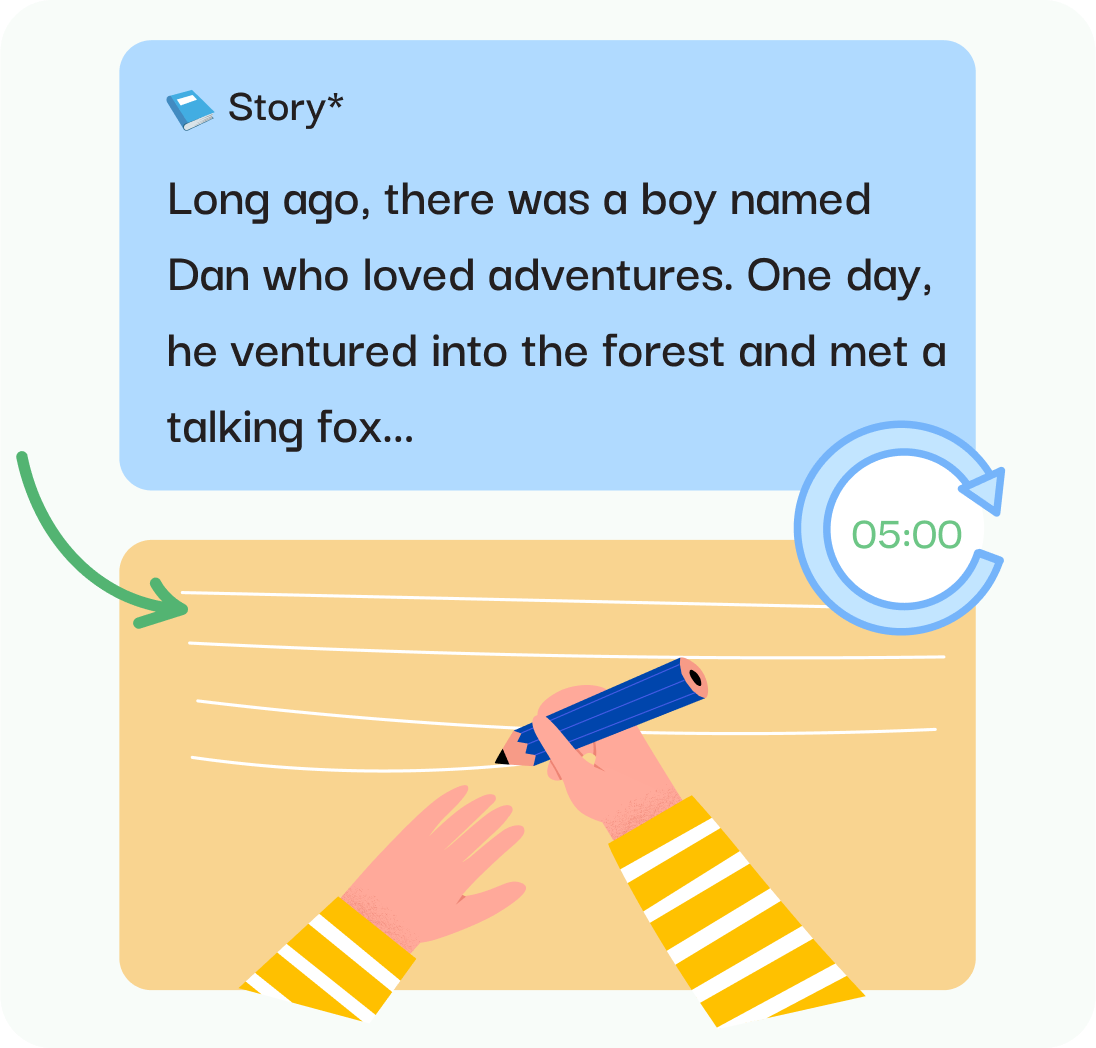
Engage Your MindProven Exercises for Enhanced Focus
Discover a variety of scientifically-designed activities tailored to improve concentration and cognitive clarity for children and seniors alike
In this exercise, you will be presented with a grid of 100 colored circles. Your task is to count how many circles of each color there are (red, blue, green, yellow, purple). This activity enhances your ability to focus on details and maintain attention over a period.

You will be shown a complex pattern of symbols (letters, numbers, shapes). Your task is to identify the symbol that does not belong in the sequence. This exercise improves your ability to concentrate on visual details and recognize patterns.

Listen to a sequence of 10 random words. After listening, write down the words in reverse order. This exercise enhances auditory focus and memory retention.

You will be given a long sequence of numbers. Identify and highlight all occurrences of the numbers 3 and 7. This task improves selective attention and the ability to filter out irrelevant information.

Read or listen to a short story with multiple plot points. After a few minutes, write down the story in as much detail as you can remember. This exercise strengthens your ability to focus on narrative details and retain information over time.

Experience SteadyMind's scientifically-designed focus exercises firsthand. Try our demo today and discover how our unique approach can enhance your concentration and cognitive clarity.

SteadyMind blends neuroscience-backed exercises with AI insights. Here are the answers we share most often.
Unlike brain games that reward rapid taps and instant novelty, SteadyMind stretches focus with therapist-designed tasks that demand sustained attention and measured breathing. Every session pairs tactile activities with guided reflection so improvements transfer into daily life.
Yes. Adaptive difficulty keeps kids engaged with manageable focus intervals, while printable worksheets and audio coaching make the program accessible for seniors. Shared progress dashboards let families coordinate practice at the right pace for each person.
Our AI reviews time on task, accuracy trends, and how quickly you recover after attention resets. Those signals generate a focus score plus tailored recommendations, helping you decide whether to increase intensity or schedule a restorative session.
Most SteadyMind sessions run 15–20 minutes, with micro-breaks built in to protect cognitive stamina. We recommend three to four sessions per week, though the adaptive coach will adjust the cadence if it detects fatigue or rapid gains.
Yes. You can customize sensory input levels, choose between visual or audio instructions, and set shorter focus intervals. Coaches also receive guidance on when to shift modalities so the exercises stay supportive rather than overwhelming.
All you need is a connected device for the digital modules and a printer or notebook for the tactile drills. Optional biofeedback tools—like a heart-rate monitor—can plug in for richer insights, but they are not required.






